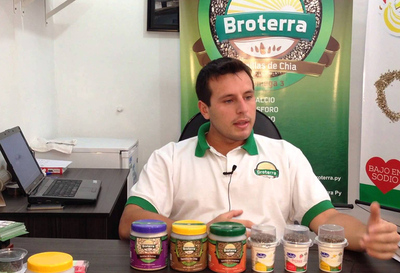Paraguay is often overshadowed by neighbors Brazil and Argentina in conversations about the Latin American startup ecosystem. Despite being one of the world’s largest hydroelectric energy producers, Paraguay has yet to emerge on the global or regional stage as a tech hub. However, Paulo Duarte, founder of Broterra, a Paraguayan superfood company that provides wages for more than 2500 families and has ambitions of selling on the US market, says that Paraguay has the potential to develop as a startup hub, especially in the food and agtech sectors.
I sat down with Paulo for this episode of Crossing Borders, my first with an entrepreneur from Paraguay, to talk about launching and scaling a startup in Paraguay, the challenges and opportunities of doing business in his home country, and why Paulo is confident that Paraguay will eventually rise as a regional hub.



